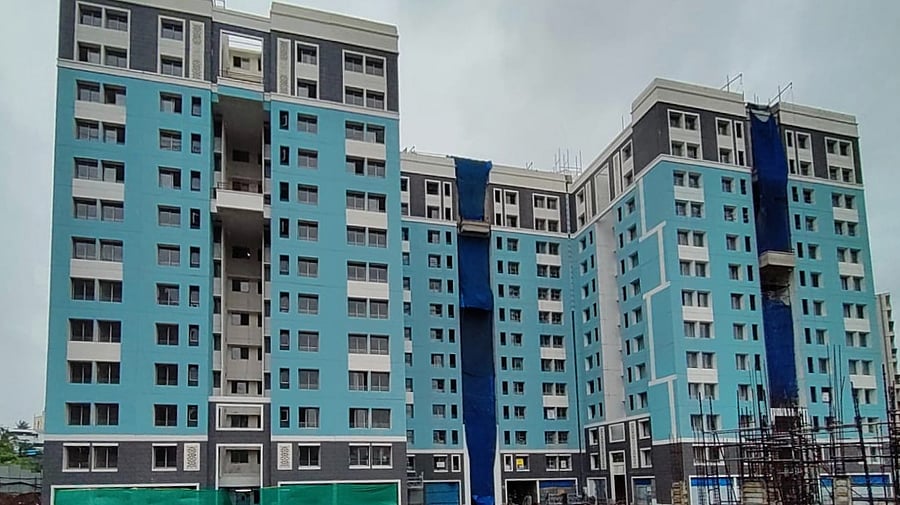
Image for representation
Credit: DH Photo
A notable aspect of the demand by some residents of a housing society in Vadodara for the revocation of a house allotted to a Muslim woman is that it was made in public. Thirty-three residents of Motnath Residency Housing Society took out a march demanding cancellation of the allotment on the grounds of the allottee’s religion, and possibilities of “threat and nuisance”. Such an open display of prejudice, refusal to share the neighbourhood with a Muslim, and demand for cancellation of the allotment would not have happened some years ago. That the demand has been openly made shows how segregated society has become, at least in some parts of India, and how divisions in the mind have become physical and territorial. This amounts to alienation and othering of a community and a rejection of its rights.
The woman, a Muslim employee of the Ministry of Entrepreneurship and Skill Development, was allotted an apartment in the Vadodara corporation’s low-income group housing complex under a state government scheme. She wanted to bring up her son in an inclusive environment. But the pushback from a section of society now comes with various reasons, including reluctance to live close to a Muslim family, fear of law and order problems, and the non-vegetarian food habits of the family. The municipal and district authorities were told that a Muslim is not welcome in a “Hindu-dominated peaceful area”. These are all sham and unacceptable reasons, and they militate against the fundamental rights of citizens to life and equality. The Constitution grants citizens equality before the law, and prohibits discrimination on grounds of religion, race, caste, sex, or place of birth.
Prejudice exists in many parts of the country. It has been particularly strong in Gujarat where it has shaped even government policy. Gujarat’s Disturbed Areas Act makes property transactions between members of different communities difficult, and even impossible in certain localities. The law has been made increasingly stringent over the years. The Uttarakhand government has sought to restrict the sale of land to outsiders since 2021, citing reasons such as demographic change. The real intention is to deny sale of land to Muslims. A bogus idea of ‘land jihad’ has also been propagated. All these amount to communal targeting and a social and economic boycott of Muslims because of their religion. They increase polarisation in society, and ghettoisation of living spaces. The authorities in Vadodara and the state government should reject the pernicious demand and ensure no “compromise” solutions are found.
